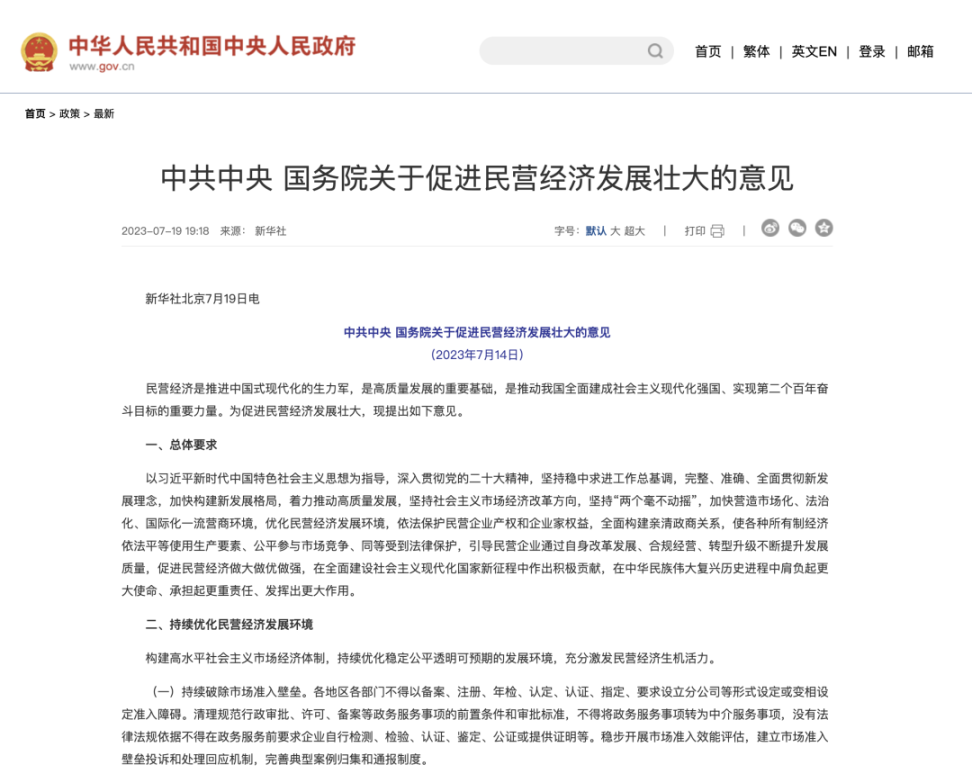Hainan issues a red-headed document to cut off NFT digital collectibles.
Hainan bans NFT digital collectibles.Author: Liu Honglin
Recently, several NFT digital collectible entrepreneurs registered in Hainan have been communicating with Lawyer Honglin about their intention to deregister or relocate to other cities.
The reason is a notification issued by the local market supervision and administration bureau in Hainan, jointly with other departments. The notification is very clear, requiring enterprises operating NFT digital collectible businesses in the jurisdiction to submit their operating qualifications within a specified time frame, otherwise “the relevant responsibilities will be borne by the enterprises themselves.”
- It is not surprising that OpenAI is making chips, what is surprising is if OpenAI does not make chips.
- Vitalik proposed a decentralized solution to the Ethereum staking protocol.
- Ethereum’s native LST adopts a two-tier staking design Lido killer?
In theory, government regulation of industry development is a good thing, but things are obviously not that simple.
Lawyer Honglin browsed through the full text of the notification and overall felt that the local government’s requirements for qualifications in the NFT digital collectible industry, which are claimed to be necessary for promoting the healthy development of the digital collectible industry, are actually an act of lazy governance through a one-size-fits-all approach.
It’s time to say goodbye (in a passive way) to the NFT digital collectible industry in Hainan.
According to the requirements of the local market supervision and administration bureau, the qualifications required to operate NFT digital collectibles locally in Hainan are:
(1) Internet Information Service Operation License (ICP).
(2) Value-Added Telecommunications Service License (EDI).
(3) Art Business Filing (Note: “Measures for the Administration of Art Business” Article 5 states that business entities engaged in art business activities should apply for a business license from the industrial and commercial administration department of the county-level or higher people’s government at their place of residence and file with the cultural administration department of the county-level or higher people’s government within 15 days from the date of receiving the business license).
(4) Blockchain Filing.
(5) Network Culture Operation License.
(6) Network Publishing Service License.
(7) Auction License (Note: Article 11 of the “People’s Republic of China Auction Law” states that enterprises must obtain approval from the department responsible for auction regulation of the provincial, autonomous region, or directly administered municipal people’s government at their place of residence in order to engage in auction businesses. Auction enterprises can be established in prefecture-level cities).
(8) Level 2 or Level 3 Security Protection Filing.
(9) Trading Market Opening License (Note: Article 2 of the “Interim Measures for the Administration of Trading Venues in Hainan Province” states that trading venues referred to in these measures refer to trading venues established within the administrative jurisdiction of our province with the approval of the provincial government, engaging in equity trading, bulk commodity trading, and other standardized contract trading, including trading venues that do not use the term “exchange” in their names, but do not include trading venues engaged in financial product trading under the daily supervision of the financial management department of the State Council).
Regarding which digital collectible enterprises need to obtain the above-mentioned 9 qualifications, the local government adopts a one-size-fits-all approach.
The wording in the notification is “If an enterprise engages in digital collectible business, especially if it opens a secondary market for trading, it should possess the above-mentioned qualifications. If it engages in business without the above-mentioned qualifications, and is suspected of illegal or irregular acts, the relevant industry regulatory authorities will impose administrative penalties. If it constitutes a crime, criminal responsibility will be pursued according to law.”
This means that whether the digital collectibles platform understood by industry practitioners only has primary market sales behavior, or opens secondary functions to allow users to communicate about collectibles, they all need to obtain the above qualifications.
Are these local government compliance requirements really reasonable and legal? I don’t know how others see it, but at least my personal opinion is: the legality and reasonableness are questionable.
We know that there are roughly two business models for mainstream NFT digital collectibles in China. One is to only sell NFT digital collectibles without supporting the transfer between users. Well-known examples of this business model include Whalesnatch. Under this business model, the issuer only sells digital collectibles as virtual goods. Regardless of the rights associated with the sold digital collectibles, they are legally considered typical goods. The only difference is that these goods are virtual goods in the digital age. In this scenario, the issuer earns sales fees for the goods, and the platform earns fees for technical services, which are completely legal and compliant. In this case, the business model and scope of digital collectibles operators are no different from mainstream e-commerce websites, so there are no special requirements for their qualifications and compliance.
The second model is based on the first model, where the platform supports the transfer of collectibles between users, such as consignment or purchase requests, similar to the “transfer behavior” on second-hand platforms like Xianyu. Due to the sensitivity of the term “Token” in the Chinese context and the prevention of financial risks, the transactional transfer between users has become a compliance focus in the digital collectibles industry. Internet giants and other companies tend to be cautious and often do not support paid transfer functionality between users. They restrict the transfer functionality in multiple dimensions to avoid speculation, and users can only trade privately or through third-party software.
In this case, regardless of the difference in business models, the local government department in Hainan has set a qualification threshold for the operation of digital collectibles by issuing documents, requiring the platforms operating digital collectibles to obtain additional qualifications unrelated to the business model, such as auction licenses and trading market opening licenses, in addition to the value-added telecommunications licenses (ICP, EDI) and internet operation compliance requirements. This is somewhat difficult.
For example, the local government requires platforms operating digital collectibles to have an online publishing license, which is somewhat unreliable. Whether NFT digital collectibles themselves constitute online publications is a question in itself. Taking the common virtual combination NFT tickets or membership equity NFT in the digital collectibles industry as an example, as a seller, selling NFTs is either to attract traffic and promote consumption or simply for brand marketing and promotion. Does a simple image or painting constitute online publishing? Ignoring the essence of the operation and requiring certification across the board is obviously regardless of how much money entrepreneurs have to spend to obtain this certification and whether they can obtain it at all.
In fact, the restrictions on the NFT digital collectibles industry are actually minor issues, but often things can escalate. The introduction of such restrictive policies in Hainan shows that over the past year, local government departments have been troubled by customer complaints and disputes in the digital collectibles industry, so they simply decided to ban it. However, this lazy action by the government obviously does not comply with the current national policies promoting the development of private enterprises.
Speaking of the State Council’s “31 Measures to Promote the Development of the Private Economy,” let’s not even talk about the distant ones. The first requirement of the central government for local governments is to continuously remove market access barriers.
Article 1 of the “Opinions”: Local governments and departments at all levels shall not set or indirectly set barriers to market access in the form of filing, registration, annual inspection, identification, certification, designation, or requirement to establish branch offices. Clean up and standardize the preconditions and approval criteria for government service matters such as administrative approval, licensing, and filing, and shall not convert government service matters into intermediary service matters. Without legal basis, enterprises shall not be required to conduct self-testing, inspection, certification, identification, notarization, or provide proof in advance of government services…
In this situation, in order to facilitate and simplify the management of enterprises, Hainan Province has established market access barriers contrary to the national policy. This is somewhat contrary to the national strategy.
In the booming NFT digital collectibles industry in early 2022, Lawyer Honglin had a conversation with a local NFT entrepreneur in Hangzhou. I asked him why so many companies in the industry chose to register in Hainan, where they have good qualifications and enjoy tax benefits. Why are you still staying in Hangzhou? He said: Hainan may seem relaxed, but it takes time to accept new things.
It seems that Hainan’s time is only one year.
Writing this article is not to encourage entrepreneurs registered in Hainan to confront the government, because it is really unnecessary. A gentleman does not stand under a dangerous wall, and a good bird chooses a tree to nest. Good entrepreneurs don’t fight against local governments, because you can’t win anyway. Since the local government has already stated that they are not welcome, the best way for entrepreneurs is to go with the flow, say goodbye to Hainan with speed and dignity, cancel the company if necessary, and relocate the address if necessary. After all, besides Hainan, there are other places that are more friendly to the internet and new economy entrepreneurship, such as Hangzhou, Shenzhen, and Chengdu.
The only hope is that when local entrepreneurs in Hainan cancel their companies or migrate, the staff at the counter of the Market Supervision Administration will not set another barrier and say, “We can’t handle this business of industrial and commercial changes because someone has complained about your company.”
We will continue to update Blocking; if you have any questions or suggestions, please contact us!
Was this article helpful?
93 out of 132 found this helpful
Related articles
- Court ruling confirms Ripple does not own XRP ledger.
- Ethereum Researcher Minimum Viable Issuance is an Important Commitment to Regular Ethereum Users
- An Introduction to Fully Homomorphic Encryption Definition and Historical Review
- friend.tech user falls victim to SIM Swap attack. Is Verizon’s SMS verification a security vulnerability?
- Sequoia Capital The challenging moment has arrived, how should we prepare?
- What are long positions and short positions?
- Three Reasons Why Ethereum Price Cannot Break Through $2000








